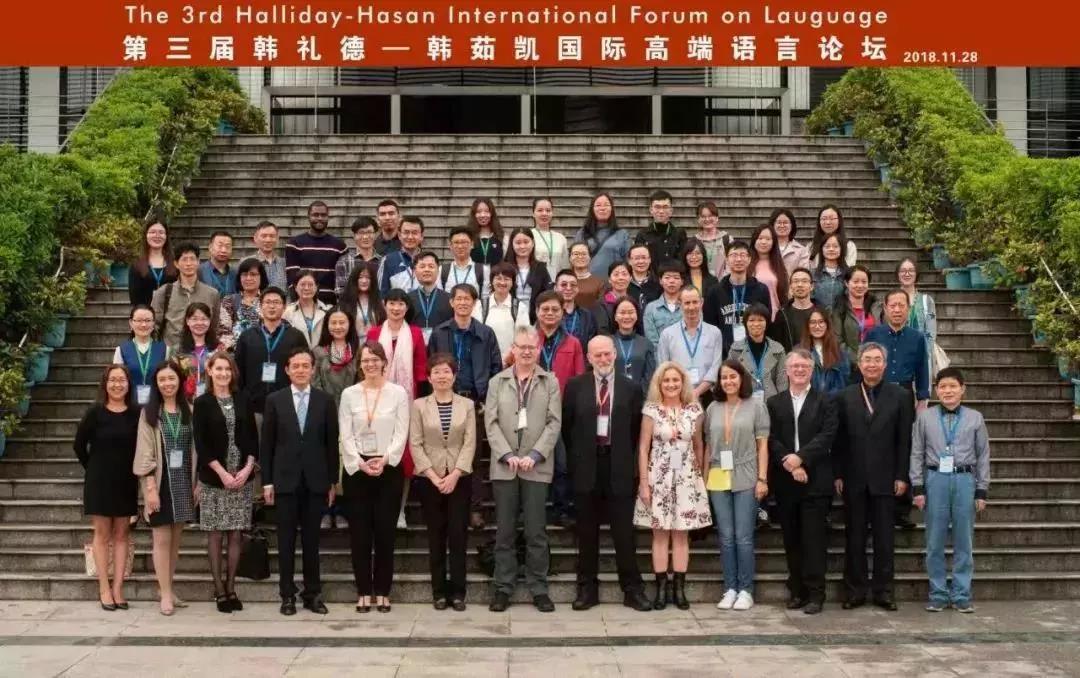School of Foreign Languages, Shenzhen University, 03-Dec-2018
The third Halliday-Hasan International Forum on Language held at Shenzhen University
The third Halliday-Hasan International Forum on Language, organized jointly by the Halliday-Hasan International Foundation for the Study of Language and Other Systems of Meaning, Guangdong University of Foreign Studies (the Fundation hereinafter) and Shenzhen University (SZU hereinafter) was held successfully 28-29 November, 2018.
The forum officially opened in the 3rd lecture hall of the Huixing Building, Shenzhen University at 9 a.m. on the 28th. Present at the opening ceremony were Chen Zhixing, Secretary of the Party Committee of the School of Foreign Languages of Shenzhen University; Professor Zhang Jiliang, Deputy Dean; Distinguished Professor Jeroen van de Weijer, and the forum conveners Professor Xuanwei Peng and Professor Geoff Williams (University of Sydney). The keynote speakers included Dr. Gerard O'Grady from Cardiff University, UK; Professor Stella Neumann from Aachen University of Technology, Germany; Dr. Alison Moore from the University of Wollongong, Australia; Dr. Neda Karimi from the Ingelham Institute of Applied Medicine, Australia. Session chairs included the following professors and doctors: Jin Nana, Wang Jin, Wang Hongyan, Yuan Chuanyou, Zhang Yiqiong, Shang Yuanyuan, Lin Yuting, Huang Man, and Chen Wenge. The audiences included many young scholars from Mainland China, Hong Kong, and Australia.
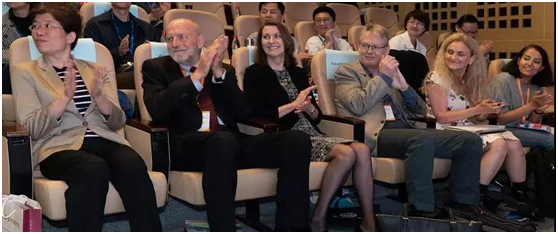
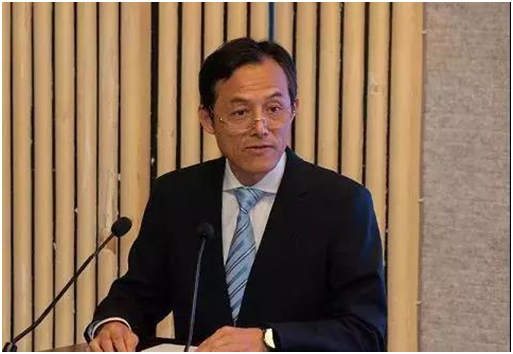
(Welcoming address by Prof. Zhang Jiliang, Deputy Dean of SFL, SZU)

(Prof. Geoff Williams, University of Sydney)

(Distinguished Professor Jeroen van de Weijer, SFL, SZU)

(Participants and audience at the forum)
The opening ceremony of the forum was chaired by Professor Peng Xuanwei, the fund executive. He introduced the organization of the forum topic selection. Professor Zhang Jiliang delivered a welcome speech on behalf of the School of Foreign Languages. Professor Williams delivered a speech on behalf of the conveners of the forum, adding a recap of the history of the creation of the forum and its publications. After the opening ceremony, a group photo was taken before the start of the keynote speeches.

The topic of this year’s forum: “Register in Context: New Questions and Possibilities”.
Before the speeches, the two conveners of the forum declared the core agenda of this forum—the concept of “register” (semantic configuration and its variant modes) and briefly outlined the changes and developments in the classic concept of “register” in the realm of systemic functional linguistics, so as to provide clear signposts of research for the speakers and audiences. To achieve this, they set the following research questions:
(1) In what sense are register and text category consistent?
(2) Given that situational categories determine register variants in the first place, what are the main ways in which the interface between them is explained and redefined?
(3) What questions are raised by these expositions and redefinitions? What is the relative value of determining register as a contextual or semantic concept?
(4) In Halliday's model, the register/discourse category appears in the instantiation from system to instance. Based on this model, is the register/discourse category still systemic? If so, how should we construe it? If not, is there a way to re-interpret it? What does ‘applicable linguistics’ mean? Similarly, is the situational category also a systematic concept? How should we understand it?
(5) If situational categories and register variants/discourse categories are essentially systematic rather than separate worldly instances, how do they relate to the situational context and the semantic system of language, respectively?
The purpose of designing these research questions is to advance the study of register theory, challenge existing understanding of relevant concepts, and provide new evidence for the existence of register and register variants. Specifically, through these questions, we hope to find a group of scholars who have been engaged in register research for a long time, and invite them to conduct further in-depth research and discussion in order to obtain some consensus and explain and describe related language phenomena more comprehensively.
Based on the above rationale, the conveners contacted a selection of renowned researchers from all over the world, and finally invited eight keynote speakers. The following is a list of speakers and their report titles.
1. Wendy Bowcher (Sun Yat-sen University): Multimodality and incorporating the non-linguistic in SFL theory: A focus on context of situation and register

2. Neda Karimi: Person-centred oncological care: A register analysis of oncology consultations between oncologists and patients with advanced incurable cancer

3. Annabelle Lukin (Macquarie University): Ideology and the cline of instantiation: system, instance, register

4. Christian Matthiessen (The Polytechnic University of Hong Kong): Approaching register trinocularly
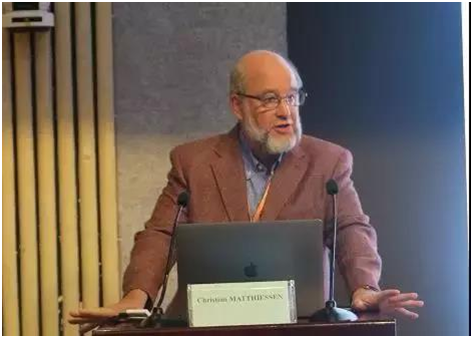
5. Alison Moore: Progress and tensions in modeling register as a semantic configuration
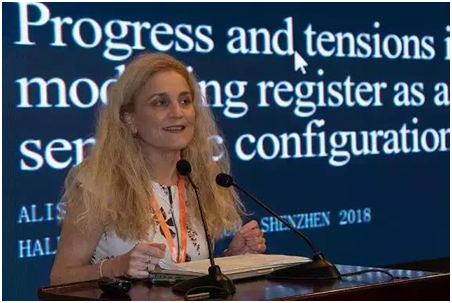
6. Stella Neumann: Register variation and regional varieties

7. Gerard O'Grady: Is there a role for prosody within register studies: and if so what and how?

8. Kazu Teruya (The Polytechnic University of Hong Kong): Register as a tool for learning about language systemic functionally
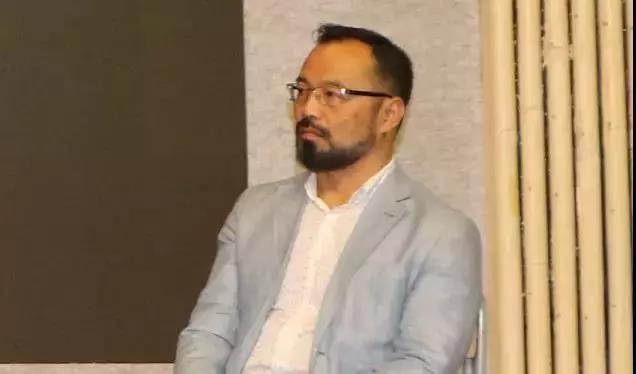
Some of We can see, from tthe titles of these keynote speeches show ,that some includes overall general introductions to the historical development of register research (such as the beginning of Prof. Alison Moore’s report); some inquire into the influence of context on the choice of register (such as the case analyses from Wendy Bowcher and Annabelle Lukin’s reports; together with Kazu Teruya's contextual trinocularity and register correspondence); some focus on clarifying concepts and sorting out theoretical complications (such as the corpus demonstrations by Stella Neumann; a comprehensive explanation of register from three common perspectives by Christian Matthiessen; and an explanation of the relationship between register variation and prosody by Gerard O’Grady); and others take an applied approach (Neda Karimi and Kazu Teruya). These reports focus on in-depth theoretical studies, adopting new approaches in methododology s (such as Stella Neumann), or exploring new understandings in theory (such as Wendy Bowcher, Annabelle Lukin, and Christian Matthiessen).
The forum had four keynote speeches on each day. After each talk, an interactive “questions and comments” session between experts and experts, and experts and participants was arranged. Delegates and participants discussed the questions and relevant issues in the report, resulting in profound communication and deeper understanding.

(The first “questions and comments” session after keynote speeches)

(The second “questions and comments” session after keynote speeches)
As arranged by the two conveners, all experts needed to submit the first draft of the full text of their talks before the meeting, which so that could be were readily readable available to among all congress participants, generating potential sparks of discussions for the Q&A and interactive sessions after the talks. The ultimate goal iswas, of course, to call for high-quality manuscripts for their newly established journal Language, Context, Text: The Social Semiotic Forum (published by John Benjamins). The two conveners confessed that although the keynote speeches cannot arrive at could not solving solve all the core issues being raised, the forum succeeded in conducting a first-of-its-kind, in-depth worldwide exploration, with some reports and methods exceeding expectations.

(Group presentation session)
In addition to the keynote speeches, two parallel sessions were also carried out. Specially invited experts came to the scene and offered questions and comments. Many speakers felt encouraged and academically enriched from the discussions on register-related matters during these sessions.
During the conference, three books and one periodical conference were released. The three monographs were Handbook of Systemic Functional Linguistics, (Cambridge U.P.), edited by Professor Wendy Bowcher; On Verbal Art: Essays in Honour of Ruqaiya Hasan (Equinox),edited by Professor Stella Neumann, and Wars and Its Ideologies (Springer), authored by Dr. Annabelle Lukin. The newly released journal is Language, Context, Text: The Social Semiotic Forum (John Benjamins).
During the preparation and holding of the forum, the party and government leaders of the school, members of the functional linguistics team and the graduate student helpers of the SZU School of Foreign Languages offered unprecedented support from all aspects and devoted their intelligence, energy and time. Once again, sincere thanks go to all the experts and representatives in this congress.
